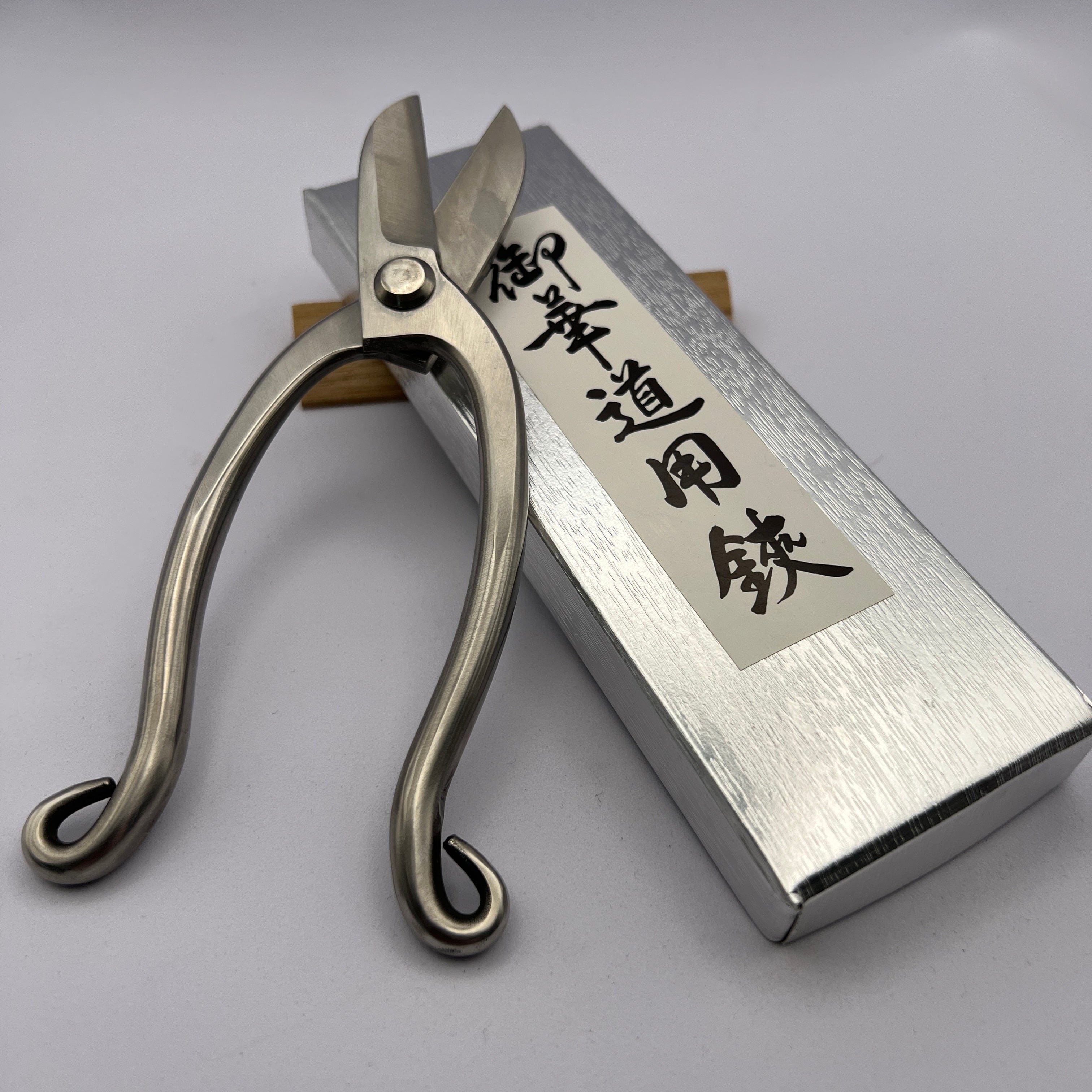
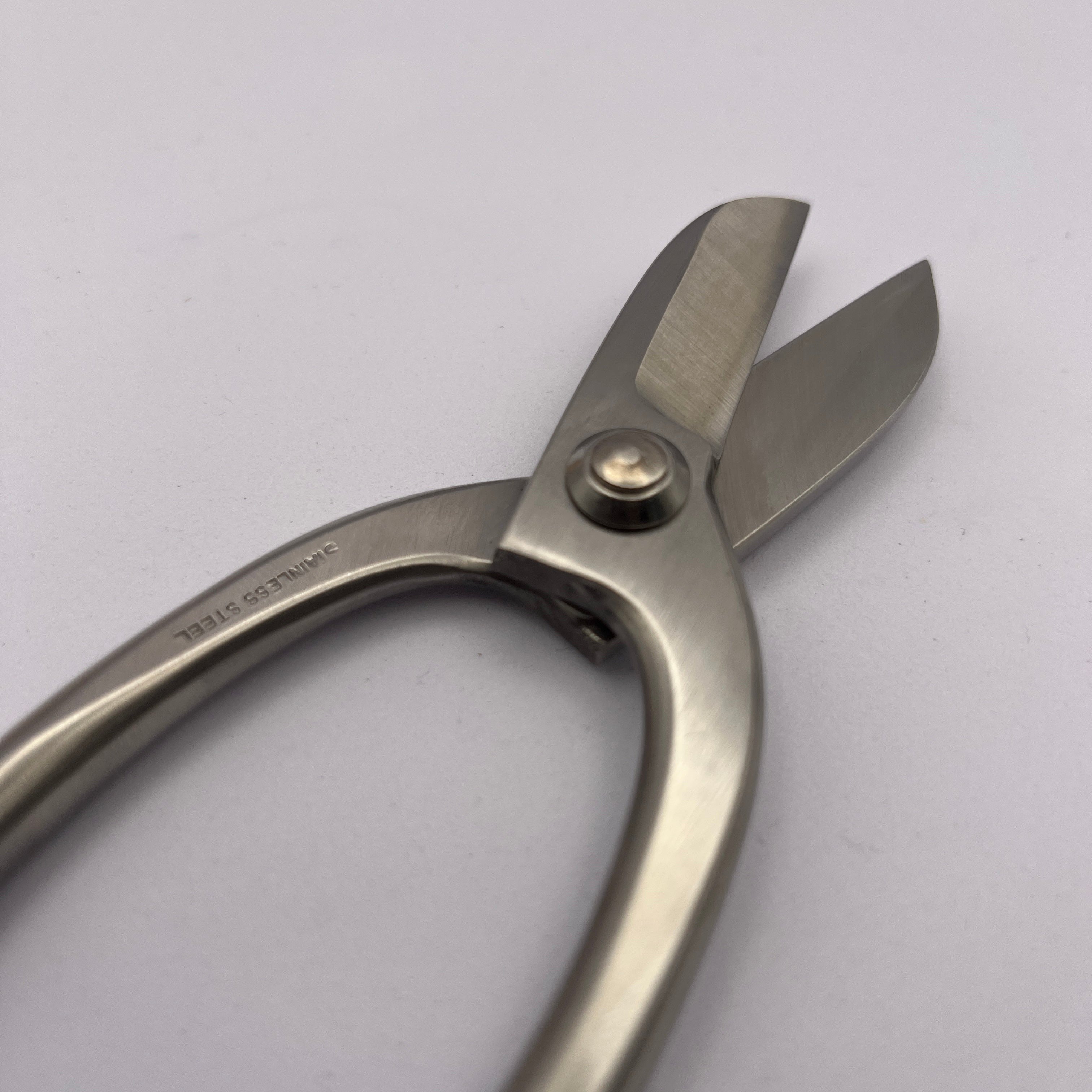
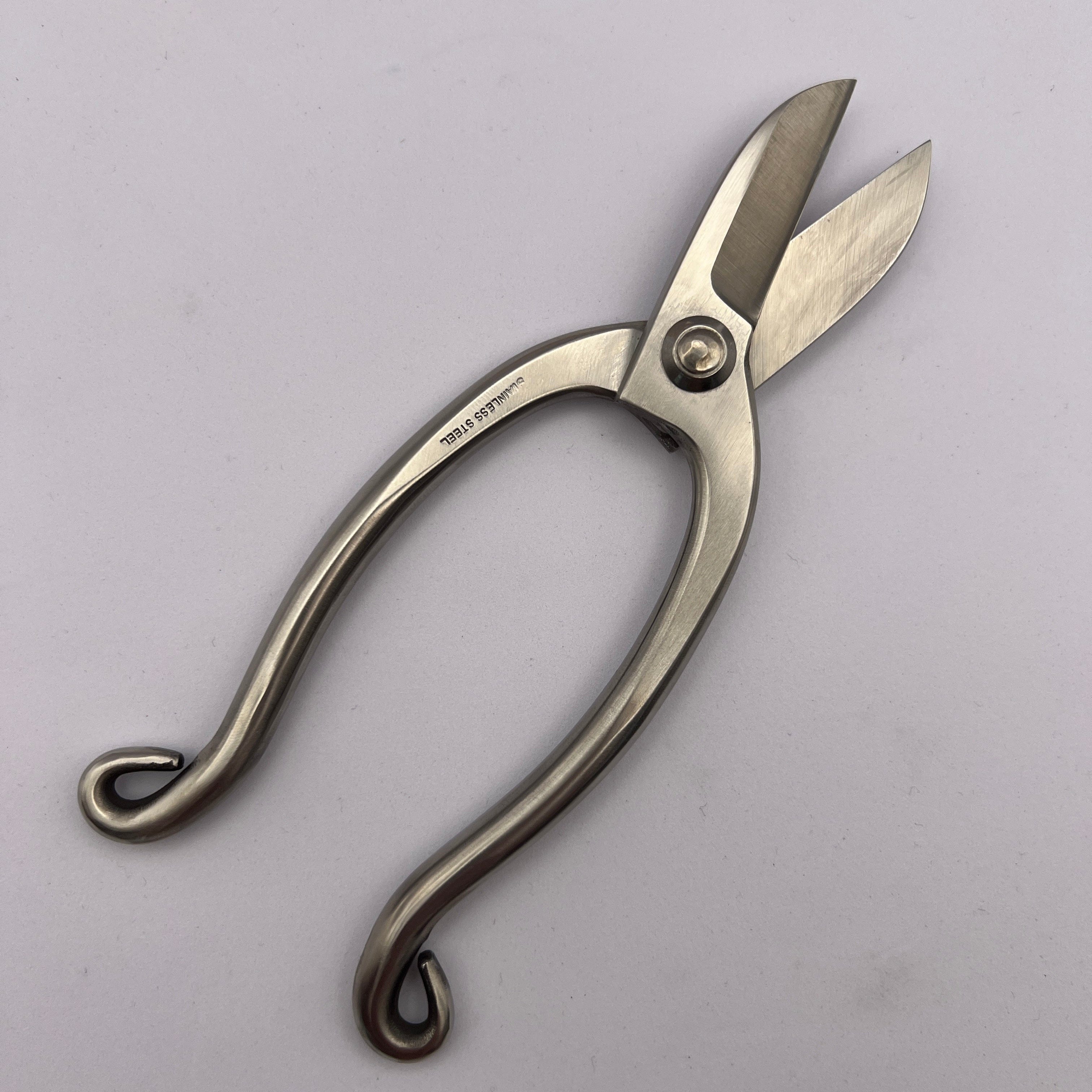
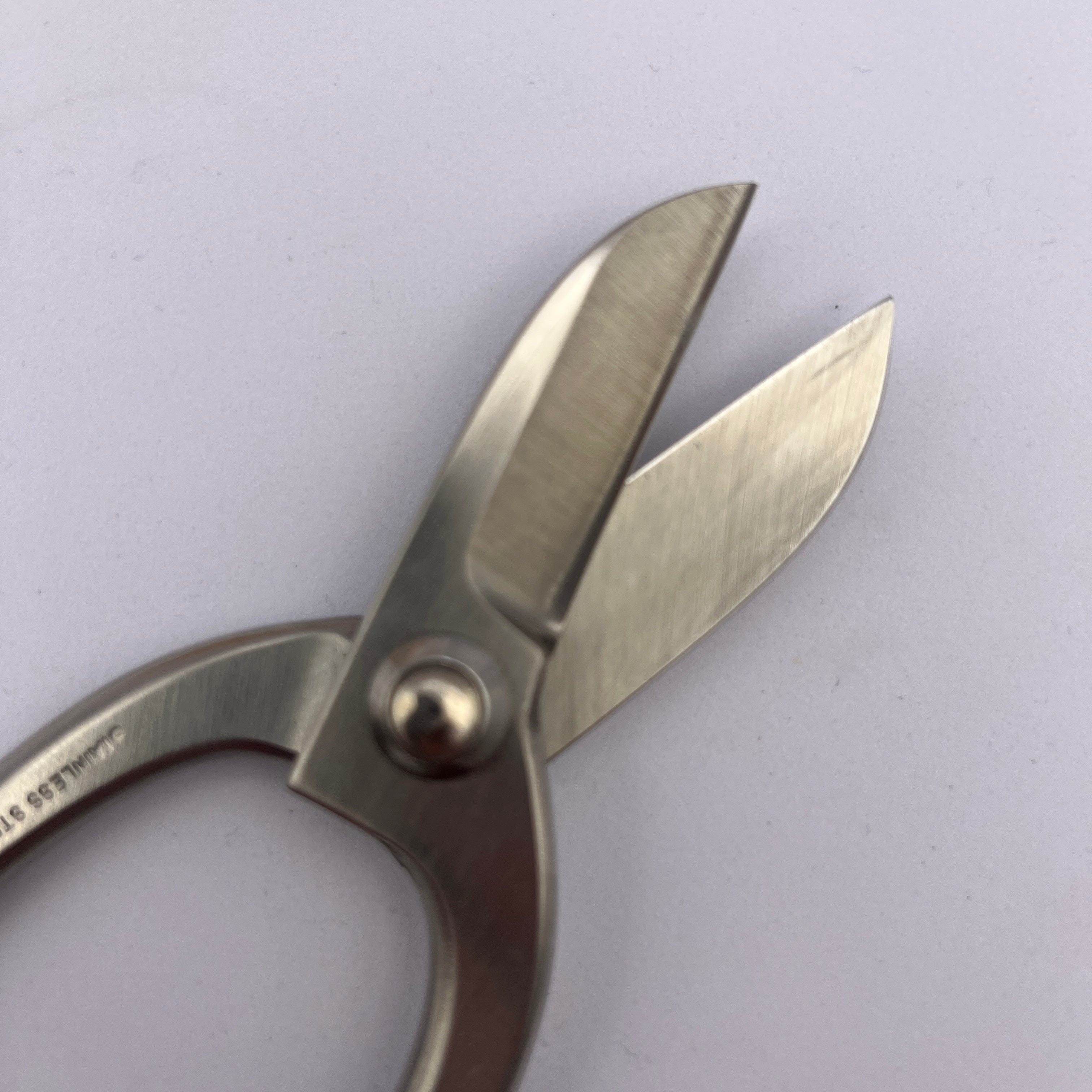
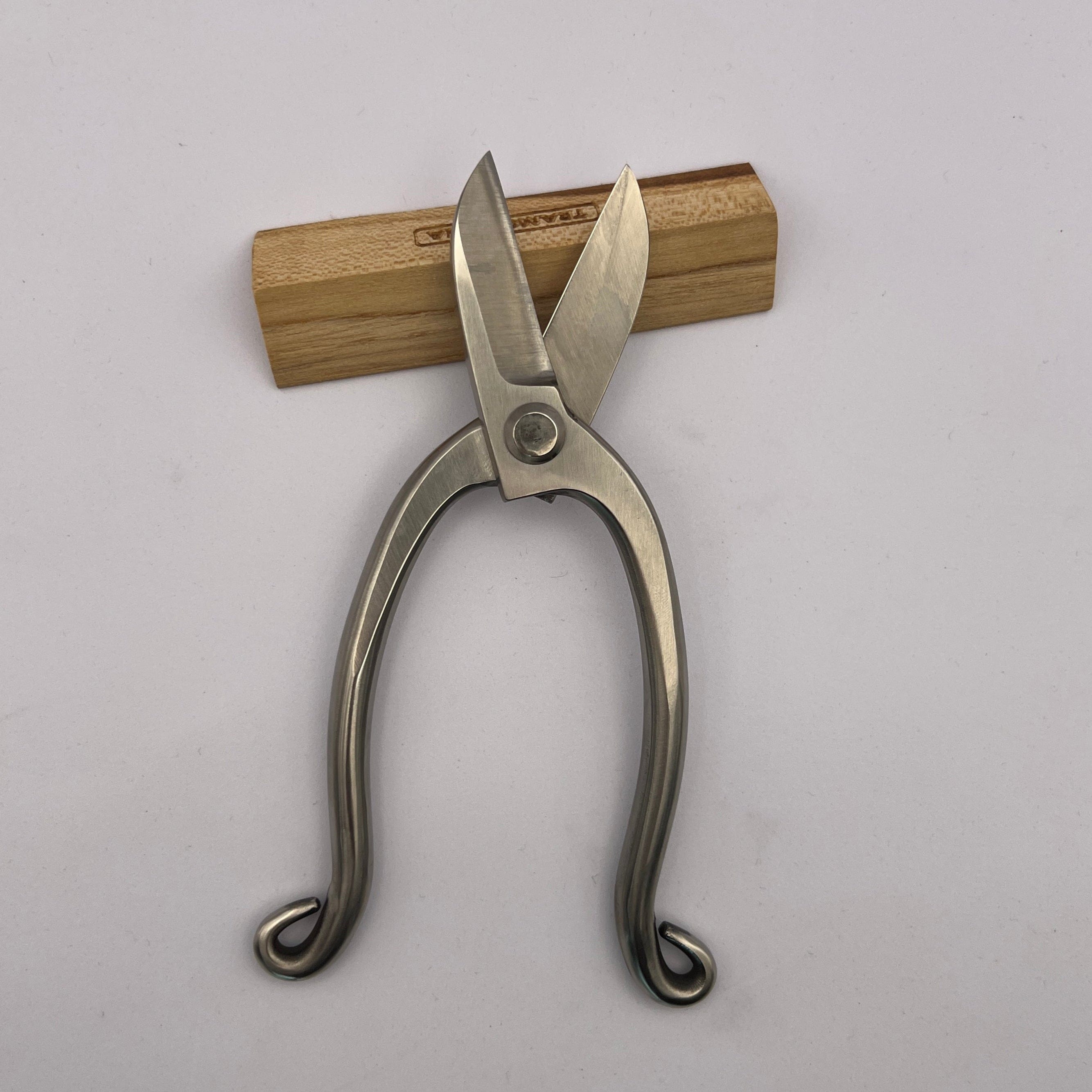
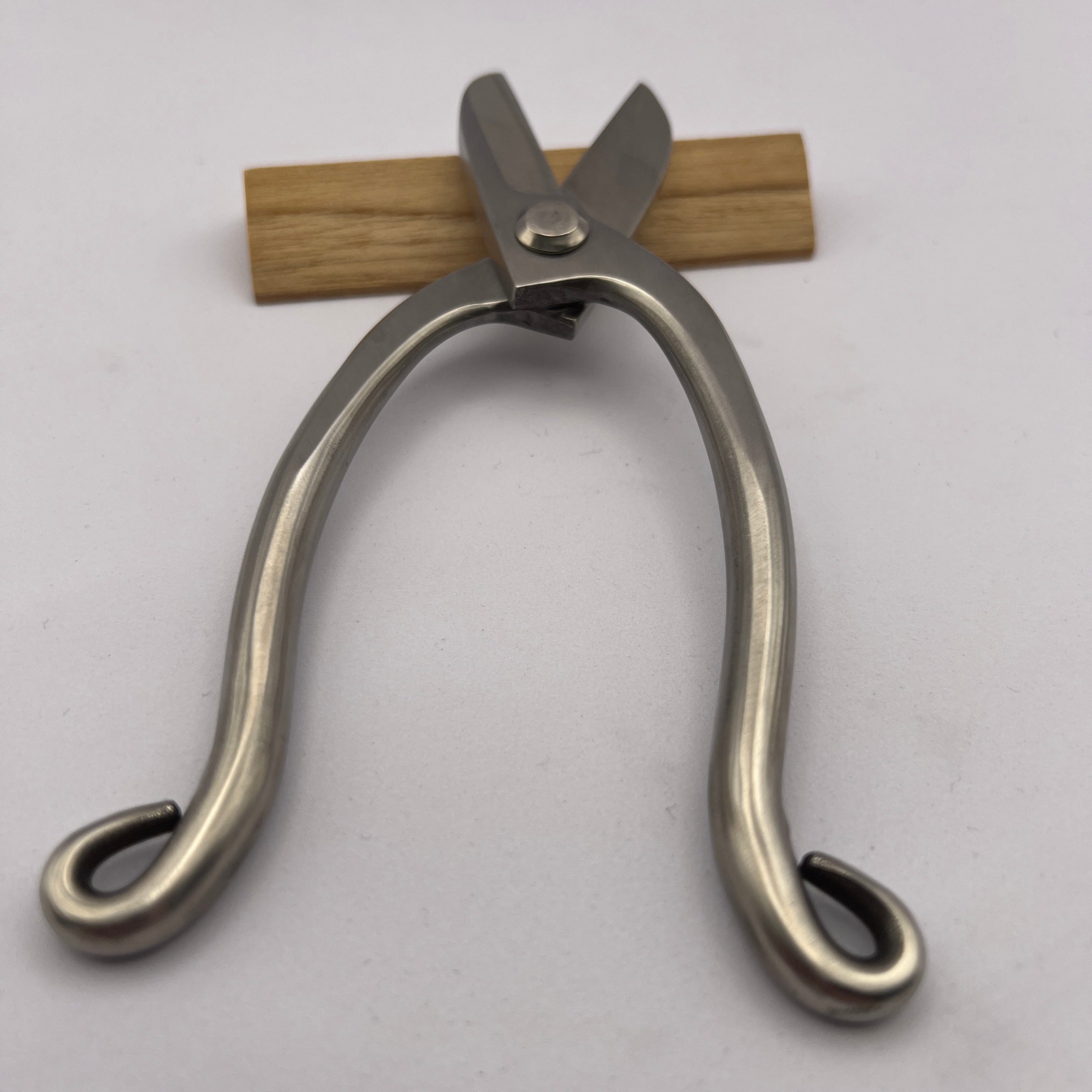
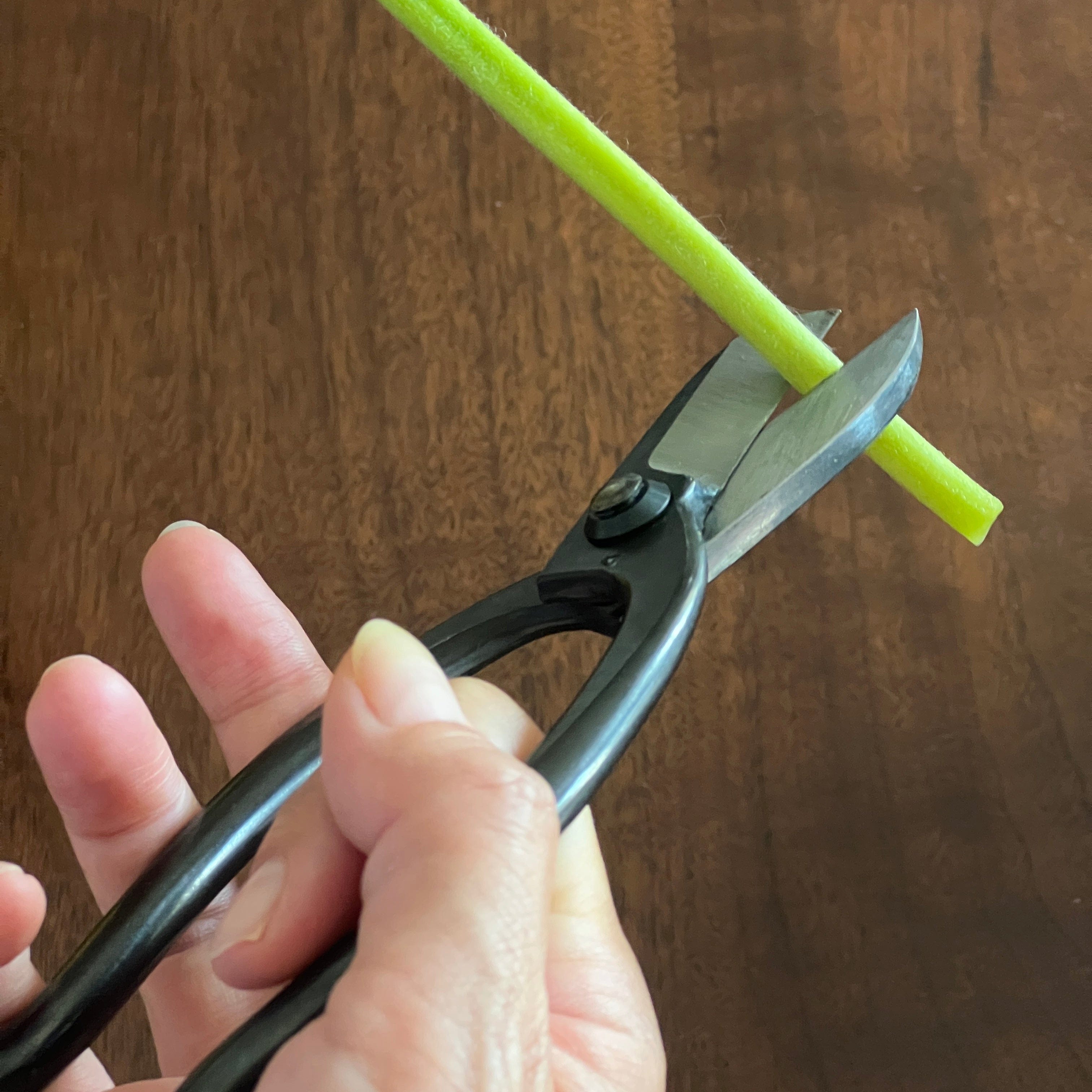
Stainless Steel Flower Scissors

Why You'll Love It?
Fast & Secure Delivery from Japan to your Door [Shipping Policy]
No surprise U.S. customs fees. [How we handle U.S. Customs for you]
Shop Safely with Encrypted Checkout and Verified Gateways.
Pairs well with

Stainless Steel Flower Scissors
Clean Cuts, Timeless Style – Stainless Steel Flower Scissors Made in Japan
In Seki, a Japanese town renowned for centuries of blade-making tradition, innovation meets elegance in this elegant pair of Stainless Steel Flower Scissors - Pruning Shears. Hand-forged with the same care as fine culinary blades, these scissors offer precise control, clean slicing, and long-lasting sharpness—featuring stainless steel’s rust resistance and minimal maintenance for outdoor use.
Crafted for Everyday Elegance
The satin-finished stainless steel lends these scissors a contemporary presence, while the silhouette pays homage to the gentle curves of traditional Japanese tools. Measuring 7 inches in total length, they are lightweight yet substantial, making repetitive snips feel effortless and fluid. Their balanced design ensures a comfortable grip, perfect for planting gardens or arranging fresh bouquets.
For Clean Cuts and Lasting Beauty
Designed for floral enthusiasts, ikebana practitioners, or anyone who appreciates refined functionality, the sharp blades slice cleanly through delicate stems without crushing—the result: healthier flowers, longer vase life, and arrangements that stay fresher. The stainless steel material also makes them suitable for professional environments where hygiene and durability matter.
Minimal Upkeep, Maximum Grace
While these scissors require little maintenance, a quick wipe after use will preserve their smooth finish. They come nestled in a premium silver gift box with bold calligraphy, making them a beautiful present for artists, gardeners, or admirers of thoughtful craftsmanship.
Designed to endure. Made to inspire. These scissors are more than a tool—they’re an extension of your artistry.
Product Information
Care instructions
FAQs
All you need to know about Japanese Knives.
What makes Japanese knives different from Western knives?
Japanese knives typically feature harder steel, thinner and sharper blades, and lighter handles compared to Western knives. These characteristics allow for precision cutting, especially suited for detailed culinary tasks, but require careful maintenance to preserve sharpness and avoid damage.
How should I maintain and sharpen a Japanese knife?
Regularly hand-wash and dry your knife immediately after use to prevent rust and corrosion. Sharpen using a whetstone designed specifically for Japanese knives, maintaining a consistent angle (usually around 15 degrees). Avoid dishwashers and harsh cleaning methods to preserve blade integrity.
Can Japanese knives be used for any type of food preparation?
While versatile, certain Japanese knives are specialized: Gyuto (chef’s knife) handles most ingredients, Santoku excels in chopping vegetables and meats, while Yanagiba is specifically suited for slicing sashimi and seafood. Selecting the right knife enhances performance and preserves blade condition.
Why are Japanese knives often more expensive?
Japanese knives are handcrafted, employing traditional methods and premium high-carbon steel, which contributes to their exceptional sharpness, durability, and aesthetics. This artisanal craftsmanship and the high-quality materials used typically result in higher pricing compared to mass-produced knives.
Are Japanese knives suitable for beginners?
Yes, beginners can effectively use Japanese knives, but it’s essential to start with user-friendly styles like Santoku or Gyuto, known for balanced handling and versatility. Proper care, handling, and regular sharpening practices will ensure a positive experience, even for novices.

